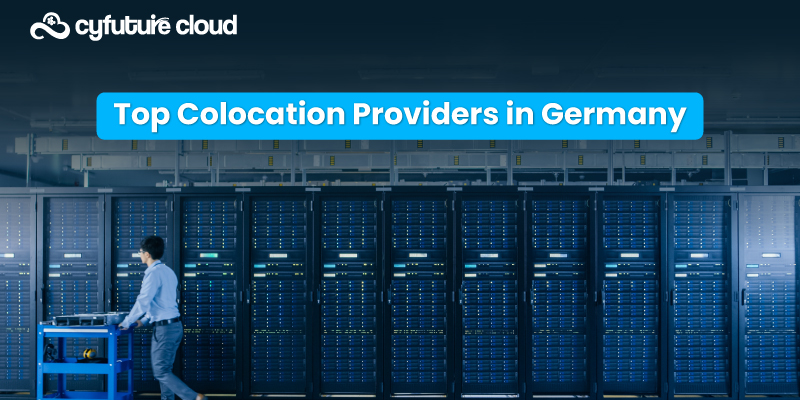Table of Contents
Artificial intelligence has recently received a lot of attention as a result of the amazing capabilities displayed by tools like ChatGPT. The massive rise in AI-generated data has resulted in an exponential increase in the volume of data created. In response to this AI-driven demand, data centers transform and adjust their designs, power infrastructure, and cooling systems in innovative and diverse ways.
According to Gartner, advanced robots with AI and ML capabilities will be deployed in half of all data centers by 2025, resulting in a 30% increase in operational efficiency.
Businesses are rushing to implement AI in order to get a competitive advantage. Deep neural networks, machine learning models, and unsupervised learning are driving innovation, but they also present their own set of issues for data centres.
To meet the growing need for storage and processing power, these facilities must be able to adapt quickly whenever adjustments are required. AI ventures require sophisticated solutions such as maximum load flexibility, cost efficiency and energy management which current data centers may not yet possess.
Keeping up with the demands of complex networks is raising questions about how today’s physical resources are used in order to meet tomorrow’s digital requirements. The purpose of this essay is to shed light on the unique difficulties that data centres face while adopting AI and to give actionable ideas on optimising data centres for more efficient AI strategies.
The Importance of AI and Machine Learning in Data Centres
1. Predictive maintenance
- Massive amounts of data gathered from sensors and monitoring systems in data center Noida or other places can be analyzed by AI and ML algorithms. Utilizing this data, businesses may anticipate hardware issues and performance snags before they happen.
- Predictive maintenance improves the overall reliability of data centre infrastructure by reducing costly downtime and enabling proactive problem-solving activities.
2. Energy efficiency
- Data centres’ extensive usage of energy leads in high operational costs and harmful environmental consequences. AI and machine learning can optimise power consumption effectiveness (PUE) by constantly changing cooling systems, server utilisation, and work allocation.
- These systems can detect trends, forecast changes in demand, and optimise energy consumption, resulting in considerable cost savings and a lower carbon impact.
3. Resource Allocation and Optimization
- AI and ML algorithms may study historical data and current workload trends to optimise resource allocation within data centres.
- By dynamically assigning workloads to available resources depending on performance requirements, organisations may improve system performance, minimise latency, and maximise utilisation.
- Additionally, ML algorithms can learn from and adjust to shifting workload patterns, dynamically optimizing resource allocation.
4. Security and Threat Detection
- Data centres face a variety of security concerns, including unauthorised access, network attacks, and data breaches. AI and ML algorithms can improve data centre security by evaluating network traffic patterns, detecting abnormalities, and detecting possible threats in real time.
- Intrusion detection systems become more effective as a consequence, and security breaches are averted. These technologies are capable of constantly learning about and responding to new dangers.
5. Intelligent Data Storage and Retrieval
- Effective data storage, Cloud migration services, and retrieval are crucial for data centers given the growth of big data. AI and ML algorithms can optimise data placement, replication, and retrieval based on access patterns and data popularity.
- By proactively assigning data across multiple storage tiers and predicting data retrieval trends, organisations may reduce latency and improve overall data centre performance.
6. Capacity Planning
- AI and ML algorithms may assist with capacity planning by analysing historical data, workload trends, and growth projections. These technologies help firms make sensible decisions about infrastructure enhancements, server provisioning, and scalability by forecasting future resource demands.
- By minimising overprovisioning and underutilization, organisations may optimise resource allocation and save money.
7. Reduced Costs
The primary use of AI in data centre operations is cost reduction. AI has been discovered to be a beneficial tool for cutting operational expenditures in data centres. Artificial intelligence (AI) aids in streamlining procedures and reducing the need for manual intervention, which lowers costs by enhancing energy efficiency, optimizing resource allocation, and adopting predictive maintenance.
8. Improved Scalability and Flexibility
- Without AI, scaling processes can be challenging. The increased complexity and volume of data may make it difficult for manual operations and traditional methods to handle. Growth might be inhibited, and operational inefficiencies could result.
- Increased scalability and flexibility are two of the most major benefits of AI in data centre operations. AI-powered systems can readily adapt and extend to suit the changing demands of a data centre. When the workload changes, AI systems may allocate resources and optimise performance automatically. This allows the data centre to manage varied demands while remaining flexible.
How AI and automation make data centers greener and more sustainable
With digital transformation gaining traction across industries, the need for data services is increasing at an exponential rate. This necessitates larger data centres. According to a rating agency, the capacity of data centres in India will more than fivefold in the next five years. According to a recent Assocham-EY white paper, ‘India smart datacenters & cloud infrastructure summit 2022’, the Indian data center market is currently worth US$1.5 billion and may grow at a CAGR of 11.4%.
Global real estate consultant JLL’s recent study states that the energy that data centers consume doubles every four years and the sector now accounts for up to 4% of greenhouse gas emissions globally. According to the report, the expansion of this industry would be directly driven by environmental, social, and governance (ESG) criteria. As a result, becoming more environmentally and socially responsible will be a primary emphasis during the next two years.
Artificial Intelligence (AI) is being used in modern data centres to overcome these issues. Coupled with automation, IoT and machine learning, AI is helping many operators design and build lean and smart data centers.AI and robotics solutions not only assist to increase energy efficiency, cut carbon emissions, provide predictive maintenance, and improve security, but they also automate regular tasks, reducing the need for labour. AI can forecast power outages, cut maintenance costs, and improve performance indicators. A Gartner report states that by 2025, half of cloud data centers will deploy advanced robots with AI and ML capabilities, resulting in 30% higher operating efficiency.
Automating process
Most of the operational processes in traditional enterprise data centers like server upgrades, scheduling, monitoring, maintenance, patching, updating, reporting, application delivery capacity planning, etc. are repetitive and error prone. These tasks may be automated within the next five years by AI-powered robots that produce reliable findings.
Industrial robots can speed up processes like dumping, dismantling, and destroying obsolete servers and equipment. Remote monitoring robots can gather data on sound and visuals to identify abnormalities and security threats. Hyperscale data centres are now automating their operations through the use of software-based management tools and machine learning. There are several advantages. Automation not only eliminates human intervention but also gives useful input on server nodes and settings while increasing speed. As a result, it enhances overall efficiency and increases ROI.
Greener and sustainable
Digital twins (real-time virtual representations) are quickly becoming essential for improving data centre efficiency. They enable data collecting from any source and assist data centres in operating more sustainably, not just financially but also environmentally. Digital twin technology decreases carbon footprint from facility design to space use.
The operations of a data centre get more complicated as it grows in size and processes more data. Digital twins using AI and ML platforms analyse data silos and track all components within the facility to make real-time changes. This may also refer to forecasting behaviours, which aids in predictive maintenance, saving energy, time, and money.
The electricity consumed by a data centre is perhaps the most significant problem. The more powerful the data centre, the more heat it creates, necessitating the use of more energy for cooling systems. Real-time control of cooling equipment using sensors and machine learning minimises the amount of energy used on cooling, lowering energy costs and lowering the carbon footprint. This reduces the need for human monitoring. The programme learns by continually analysing sensor data and adjusting to changes in the environment. Companies who use AI strategically might save up to 40% of the power used for data centre cooling.
Data outages in data centers are regular, but costly. Traditional data centres manually monitor and report data disruptions. AI can monitor server performance, network congestion, and disc utilisation, as well as forecast data failures in data centres, reducing downtime.
Improved security
Data centres are vulnerable to several types of security vulnerabilities, both physical and digital, which are key issues for service providers. A data center’s physical security is ensured by AI/ML-powered smart cameras, intrusion detection systems, and robotics. AI is also useful in preventing cyber security concerns since AI systems learn regular network behaviour and detect any deviations. Furthermore, AI can detect malware and discover security flaws in data centre systems, as well as extensively analyse incoming and exiting data for security concerns.
Data centre operations will grow more difficult as businesses prepare for digital transformation. Using AI and automation to power them will not only make them more sustainable, but will also help firms compete.
How Can Cyfuture Cloud Help You Streamline Your Data Center Operations?
To streamline data center operations, organizations need to leverage generative ai development services and machine learning solutions that enhance visibility and enable better decision-making. These complete AI solutions integrate constantly expanding machine learning techniques with rule-based systems by putting data analytics at the heart of operations. This integration maximises the value of data analysis and enables data centre operators to continually enhance their procedures.
Because of the increasing pressure for organisations to move to sustainable and eco-friendly data centres, it is critical to use AI, IoT, and ML technologies to build intelligent solutions that can optimise business processes. Cyfuture Cloud’s artificial intelligence services can help you design AI-enabled tools to automate tasks and improve efficiency. Our predictive analytics services can further help reduce energy usage and optimize overall operational costs.
Conclusion
In the relentless pursuit of efficiency and performance, data center operations can find a powerful ally in Artificial Intelligence. AI’s influence on data centres is revolutionary, from predictive maintenance to energy optimisation and security advancements.
Recent Post
Send this to a friend

 Server
Colocation
Server
Colocation CDN
Network
CDN
Network Linux
Cloud Hosting
Linux
Cloud Hosting Kubernetes
Kubernetes Pricing
Calculator
Pricing
Calculator
 Power
Power
 Utilities
Utilities VMware
Private Cloud
VMware
Private Cloud VMware
on AWS
VMware
on AWS VMware
on Azure
VMware
on Azure Service
Level Agreement
Service
Level Agreement 




















